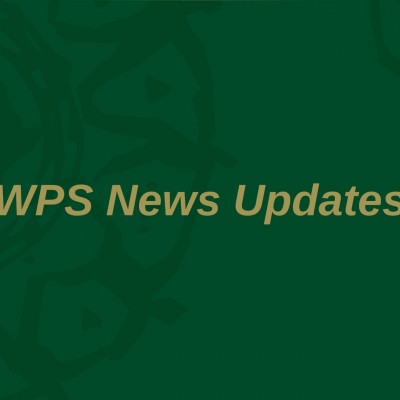Monthly Action Points (MAP) for the Security Council: October 2020
Source: NGO Working Group on WPS
For October, in which the Russian Federation has the presidency of the UN Security Council, the MAP provides recommendations on the situations in Haiti and Sudan, as well as the open debate on Women, peace and security.
Read the MAPs here.
In Sudan, women are still facing the deadly threat of the military
Source: Open Democracy
Since July 2020 at least 30 women were injured or killed during protests and other incidents of violence around Sudan, all of them in the conflict areas of Darfur and the Nuba Mountains. At least 7 women were arrested or faced lawsuits for participating in public events or expressing their opinion in public. Women activists, journalists, and artists remain under threat by the military and its militias using their resources to shrink the public space and obstruct the rights to freedom of assembly and expression.
Read more here.
Inside Story: How we broke the Ebola sexual abuse scandal
Source: The New Humanitarian
Early last year during a trip to the Ebola outbreak zones in the Democratic Republic of Congo, we were tipped off that aid workers might be sexually abusing and exploiting women.
It took us about a year to gather detailed allegations from dozens of women in what became a joint investigation between The New Humanitarian and the Thomson Reuters Foundation. In the end, 51 women spoke to us. They said they were propositioned, abused, or lured into sex-for-work schemes – mostly by international aid workers. Thirty of the women accused men from the World Health Organization (WHO). Many of the women’s accounts were corroborated by aid agency drivers and other NGO officials we interviewed.
Read more here.
The Next 20 Years of the Women, Peace, and Security Agenda
Source: IPI
This year, the international community recognizes the 20th anniversary of United Nations Security Council resolution 1325, the start of the women, peace, and security (WPS) agenda. Over the years, the agenda has stood as a means to elevate women’s voices and leadership, increase their participation in peace processes and leadership in security institutions, and bring grassroots strategies for peace building to the international level. While the passing of 1325 was a significant step for gender equality, the agenda and its champions have also come under criticism for Western-centrism and its still-colonial framing of the “Global South,” selective or limited implementation of the agenda’s practical goals, and gender essentialism.
If institutions, organizations, and commitments become more representative and inclusive, they will support the aims of WPS and can achieve the initial goals for gender equality that are at the heart of resolution 1325. This is why it is so important to analyze the future of the WPS agenda. In particular, what is “the new normal” and how can the twentieth anniversary be used as an opportunity for imagination and radical possibility? What trends in gender, peace, and security should policymakers at the UN and beyond be paying attention to, particularly as global systems shift in the wake of the COVID-19 pandemic? With an inclusive framework in mind, these questions can help strengthen the WPS agenda in a way that will lead to more effective inclusion, protection, and participation of women, by including and working to support other actors and perspectives. In this regard, it is important to consider the future of WPS across three thematic areas: peace as not just the absence of war; expansion and inclusion in the WPS agenda; and gendering traditional security actors and institutions.
Read more here.
UN Trust Fund assesses COVID-19 impact on violence against women and front line organizations
Source: UN Women
Violence against women and girls surged alarmingly as COVID-19 spread and governments introduced lockdown measures to contain it. This was the initial assessment of the UN Trust Fund to End Violence against Women (UN Trust Fund), based on the responses of 144 civil society organizations (CSOs) operating in 69 countries and territories worldwide.
Six months into the crisis, the UN Trust Fund’s second assessment shows that the continued economic insecurity and movement restrictions are still driving increased violence against women and girls. It also highlights the urgent need to resource support services for survivors of violence provided by CSOs and women’s rights organizations (WROs) that are on the front line of community responses.
Read more here.
In The Words of … Shamira Mshangama : “We need to level the playfield to increase young women’s leadership and participation in politics”
Source: UN Women
Shamira Mshangama, 26, is the Founder and Executive Director of Mwanamke na Uongozi, Tanzania, a Non-Governmental Organisation based in Dar es Salaam. It empowers and inspires girls and women in both rural and urban areas to participate in leadership and decision-making positions in all spheres of life.
Read her story here.
Press release: Hundreds of women’s rights advocates from Eastern Europe and the Caucasus demand systemic change to realize women’s rights for an equal future
Source: UN Women
On 6 October, feminists and women’s rights advocates from Eastern Europe and the Caucasus are coming together in a virtual consultation to assess the progress achieved towards commitments made in the Beijing Declaration and Platform for Action, the most visionary agenda for the human rights of women and girls. They will discuss challenges and critical priorities, and collectively advocate for systemic change with bold political will and decisive actions to accelerate the achievement of gender equality.
The meeting will mark the first in a series of consultations covering a range of themes related to women’s human rights, gender equality and women’s empowerment and will feed into the Generation Equality Forum, a civil society–centred, global gathering for gender equality, convened by UN Women and co-hosted by the governments of Mexico and France next year. In a concluding session, participants will present their recommendations to decision-makers and development partners.
Read more here.



